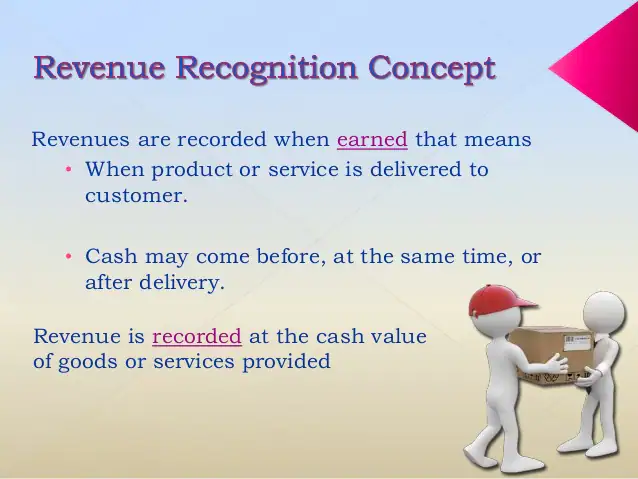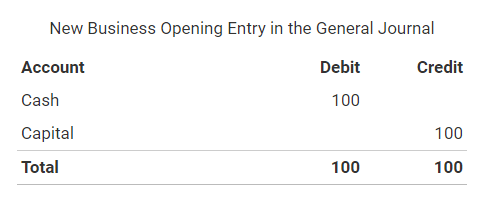
Artificial intelligence in finance refers to the application of a set of technologies, particularly machine learning algorithms, in the finance industry. This fintech enables financial services organizations to improve the efficiency, accuracy and speed of such tasks as data analytics, forecasting, investment management, risk management, fraud detection, customer service and more. AI is modernizing the financial industry by automating certificate of deposit accounting journal entry traditionally manual banking processes, enabling a better understanding of financial markets and creating ways to engage customers that mimic human intelligence and interaction. AI is revolutionizing how financial institutions operate and fueling startups. AI models execute trades with unprecedented speed and precision, taking advantage of real-time market data to unlock deeper insights and dictate where investments are made.
- ClickUp Brain is an AI-powered virtual assistant that uses natural language processing to help with everything from financial management and project detailing to client check-ins and meeting updates.
- It provides real-time financial data analysis to improve business decisions, integrating AI with human knowledge for the most effective information.
- Exposure modeling estimates the potential losses or impacts a financial institution, or portfolio may experience under different market conditions.
- Among the financial institutions we studied, four organizational archetypes have emerged, each with its own potential benefits and challenges (exhibit).
- Financial institutions also leverage AI-powered copilots like Scale’s Enterprise Copilot to assist wealth managers internally.
Personalized banking experience
Kasisto is the creator of KAI, a conversational AI platform used to improve customer experiences in the finance industry. KAI helps banks reduce call center volume by providing customers with self-service options and solutions. Additionally, the AI-powered chatbots also give users calculated recommendations and help with other daily financial decisions. AI effectively manages combating fraudulent activities, which helps to secure customers and builds trust.
Transforming services with intelligent automation

For example, finance organizations can leverage digital assistants to notify teams when expenses are out of compliance or to automatically submit expense reports for faster reimbursement. Today’s digital assistants are context-aware, conversational, and available on almost any device. Employees don’t have to remember complex query language or transaction codes. Instead, they can interact with the ERP system using plain, natural language. Business leaders are excited about generative AI (gen AI) and its potential to increase the efficiency and effectiveness of corporate functions such as finance.
How AI and Machine Learning are transforming finance

A high-performing finance function understands the use cases that could most significantly and feasibly improve their function (Exhibit 2). Eno launched in 2017 and was the first natural language SMS text-based assistant offered by a US bank. Eno generates insights and anticipates customer needs throughover 12 proactive capabilities, such as alerting customers about suspected fraud or price hikes in subscription services.
Part I: Opportunities for finance and controllership in the new Generative AI frontier
The traditional loan approval process has many grey areas where the assessment is reliant on human experience. AI-powered solutions have excellent results for credit risk management. For example, the US-based FinTech company Zest AI reduced losses and default rates by 20%, employing AI for credit risk optimization. Gridlex is a unified suite of business tools that includes Gridlex Sky. Sky is an accounting, expenses, and ERP software created by Gridlex to make financial processes easier. It’s designed for accounting firms and businesses that want to streamline the billing and invoicing process.
How finance leaders across functions can use Generative AI
The technologies are helping the financial sector to achieve its goals of personalized and reliable services meeting the needs and expectations of its customers. Thus, customers get faster and more accurate responses to their queries and requests through channels such as voice assistants, chatbots, and email. Consequently, customer sentiment and feedback are enhanced, increasing customer trust and satisfaction. For Chase, consumer banking represents over 50% of its net income; as such, the bank has adopted key fraud detecting applications for its account holders. Chase’s high scores in both Security and Reliability—largely bolstered by its use of AI—earned it second place in Insider Intelligence’s 2020 US Banking Digital Trust survey.
Most banks (80%) are highly aware of the potential benefits presented by AI, according to Insider Intelligence’s AI in Banking report. Zeni uses AI to automate accounting, spending, and budgeting processes to streamline financial operations. It provides real-time financial data analysis to improve business decisions, integrating AI with human knowledge for the most effective information.
These dimensions are interconnected and require alignment across the enterprise. A great operating model on its own, for instance, won’t bring results without the right talent or data in place. Robo-advisors appeal to those interested in investing but lack the technical knowledge to make investment decisions independently.
CFOs typically aren’t software engineers, let alone practiced experts in predictive language models. Their first step should be to try out the technology to get a feel for what it can do—and where its limits are at the moment. Solutions such as OpenAI’s ChatGPT are available online, and other applications (including McKinsey’s Lilli) are already in use. The true challenge will be for finance chiefs to identify where automation could transform their organizations. Further, they should check whether the opportunities to automate are in areas that consume valuable resources and slow down operations.
Accounting is all about calculations, mathematics, regulated processes, and tax compliance. The Deloitte AI Institute helps organizations transform through cutting-edge AI insights and innovation by bringing together the brightest minds in AI services. For all its tantalizing potential to automate and augment processes, generative AI will still require human talent. Generative https://www.accountingcoaching.online/study-tips-how-to-successfully-extend-a-trial/ AI might start by producing concise and coherent summaries of text (e.g., meeting minutes), converting existing content to new modes (e.g., text to visual charts), or generating impact analyses from, say, new regulations. Producing novel content represents a definitive shift in the capabilities of AI, moving it from an enabler of our work to a potential co-pilot.

Today, companies are deploying AI-driven innovations to help them keep pace with constant change. According to the 2021 research report “Money and Machines,” by Savanta and Oracle, 85% of business leaders want help from artificial intelligence. Explore what generative artificial intelligence means for the future of AI, finance and accounting (F&A). Overall, the integration of AI in finance is creating a new era of data-driven decision-making, efficiency, security and customer experience in the financial sector.
Of course, companies make investments that don’t pan out all the time, but an endorsement from a company of Nvidia’s caliber — one that seems to have a crystal ball when it comes to AI — is reason enough to take an interest. All eyes are on its every move, so when it disclosed a hefty position in artificial intelligence (AI) company SoundHound AI (SOUN -2.72%) last February, shares of the small-cap stock rocketed up well over 50% in a day. AI-powered solutions can help you harness the power https://www.accountingcoaching.online/ of analytics and automation. If you’re considering building a game-changing AI solution and don’t know where to start, talk to us. For example, the chatbot “KAI” from Mastercard uses ML algorithms and NLP, offering consumers tailored help and financial insights across numerous channels, including WhatsApp, Messenger, and SMS. Docyt also allows you to keep all critical financial information and documents in one secure place and create separate vaults for different projects or businesses.
Ayasdi creates cloud-based machine intelligence solutions for fintech businesses and organizations to understand and manage risk, anticipate the needs of customers and even aid in anti-money laundering processes. Its Sensa AML and fraud detection software runs continuous integration and deployment and analyzes its own as well as third-party data to identify and weed out false positives and detect new fraud activity. The dynamic landscape of gen AI in banking demands a strategic approach to operating models. Banks and other financial institutions should balance speed and innovation with risk, adapting their structures to harness the technology’s full potential. As financial-services companies navigate this journey, the strategies outlined in this article can serve as a guide to aligning their gen AI initiatives with strategic goals for maximum impact. Scaling isn’t easy, and institutions should make a push to bring gen AI solutions to market with the appropriate operating model before they can reap the nascent technology’s full benefits.
Leave a Reply